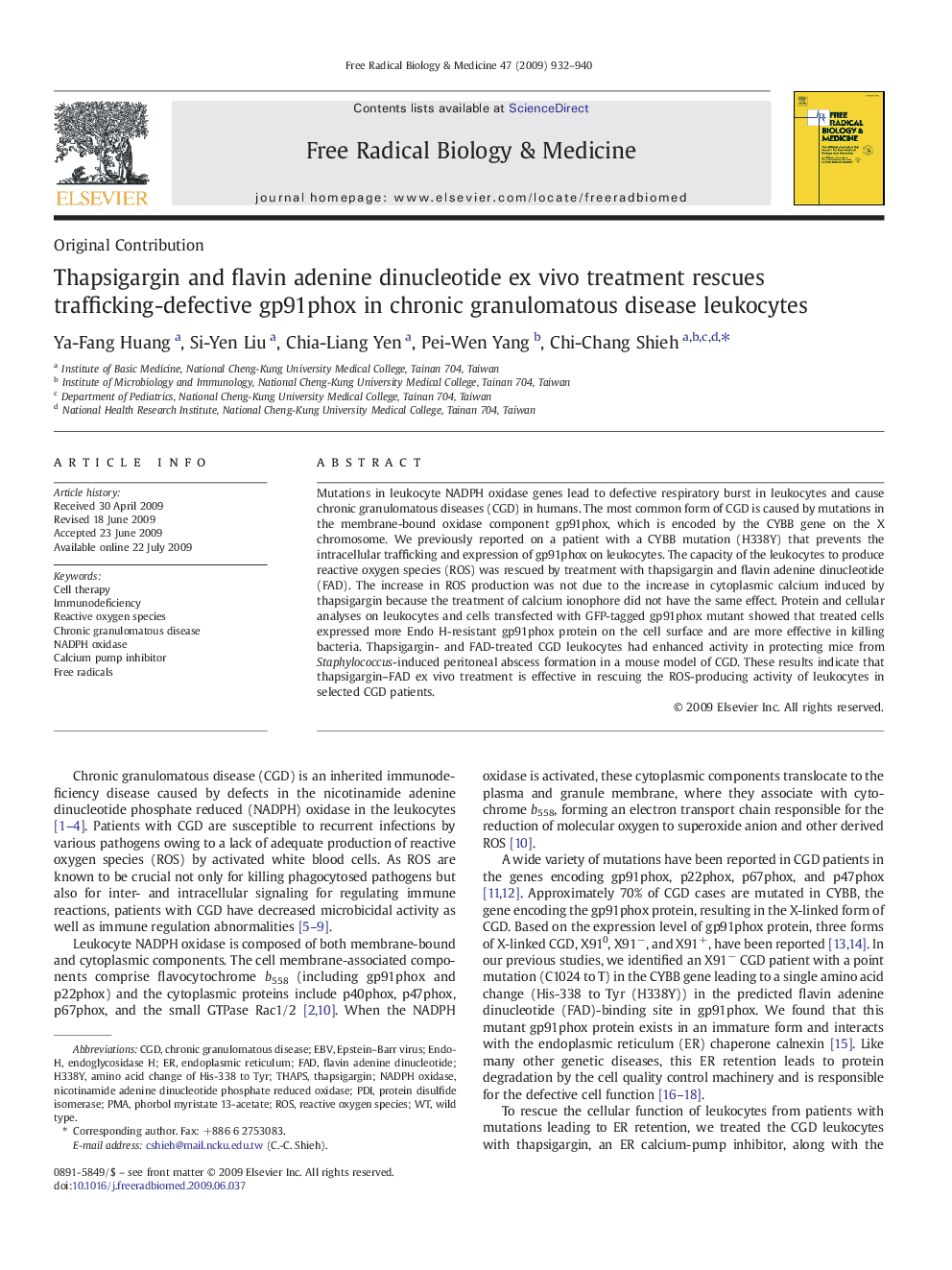| Article ID | Journal | Published Year | Pages | File Type |
|---|---|---|---|---|
| 1909782 | Free Radical Biology and Medicine | 2009 | 9 Pages |
Mutations in leukocyte NADPH oxidase genes lead to defective respiratory burst in leukocytes and cause chronic granulomatous diseases (CGD) in humans. The most common form of CGD is caused by mutations in the membrane-bound oxidase component gp91phox, which is encoded by the CYBB gene on the X chromosome. We previously reported on a patient with a CYBB mutation (H338Y) that prevents the intracellular trafficking and expression of gp91phox on leukocytes. The capacity of the leukocytes to produce reactive oxygen species (ROS) was rescued by treatment with thapsigargin and flavin adenine dinucleotide (FAD). The increase in ROS production was not due to the increase in cytoplasmic calcium induced by thapsigargin because the treatment of calcium ionophore did not have the same effect. Protein and cellular analyses on leukocytes and cells transfected with GFP-tagged gp91phox mutant showed that treated cells expressed more Endo H-resistant gp91phox protein on the cell surface and are more effective in killing bacteria. Thapsigargin- and FAD-treated CGD leukocytes had enhanced activity in protecting mice from Staphylococcus-induced peritoneal abscess formation in a mouse model of CGD. These results indicate that thapsigargin–FAD ex vivo treatment is effective in rescuing the ROS-producing activity of leukocytes in selected CGD patients.
